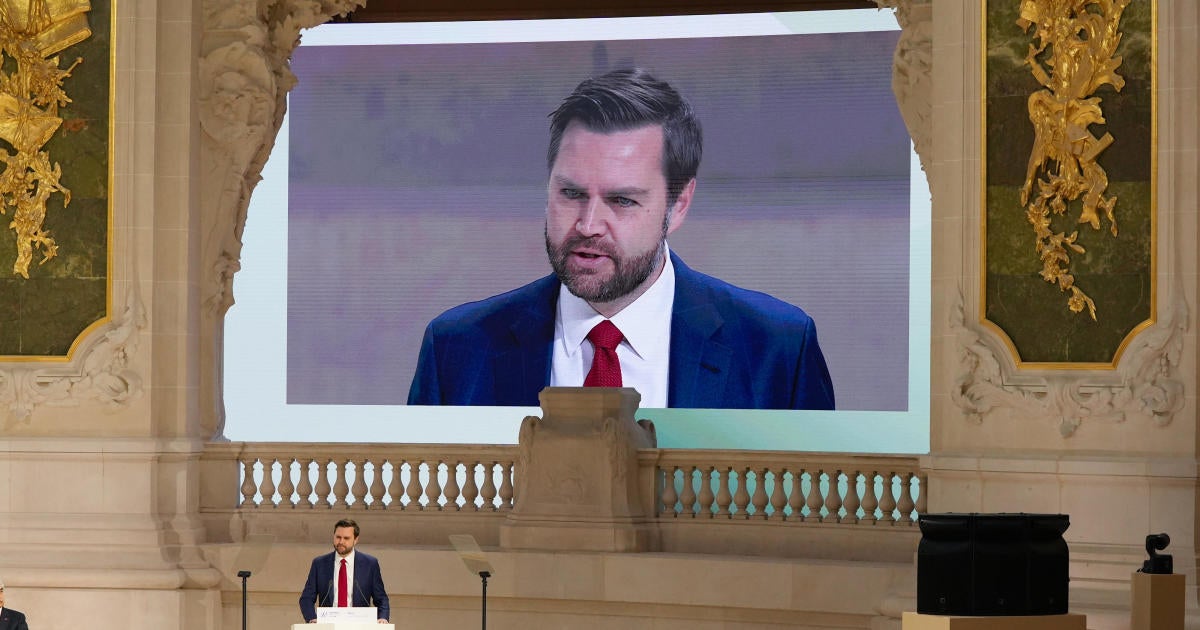Vance Sounds Alarm on AI Overregulation at Paris Summit
At a pivotal summit in Paris, Vance cautioned European leaders about the dangers of excessive AI regulations. His insights provoke a critical dialogue on finding a balance that fosters innovation while ensuring safety. As the global conversation around artificial intelligence (AI) intensifies, the need for a measured approach to regulation becomes increasingly evident. Vance’s remarks highlight a critical juncture where technology, policy, and ethics intersect, urging policymakers to tread carefully in their quest to regulate this transformative field.
The Growing Concern of AI Overregulation
Artificial intelligence is reshaping industries, economies, and daily life at an unprecedented pace. With its potential to enhance productivity, streamline processes, and create innovative solutions, AI has earned its place as a cornerstone of modern technology. However, alongside the immense opportunities, there are legitimate concerns about privacy, security, and ethical implications.
Vance’s cautionary stance at the Paris summit underscores the risk of overregulation, which could stifle innovation and hinder the very advancements that might address these concerns. The essence of his argument revolves around the idea that while regulation is necessary to safeguard societal interests, it must not come at the cost of innovation.
Finding the Right Balance
In his address, Vance emphasized the crucial need for balance in AI regulation. He proposed a framework that allows for innovation while implementing necessary safeguards. Some key points he raised include:
- Adaptive Regulations: Regulations should evolve alongside technology. Static rules may quickly become outdated in a field characterized by rapid advancements.
- Collaboration with Industry Leaders: Engaging with AI experts, developers, and businesses can provide crucial insights into what regulations are practical and necessary.
- Focus on Outcomes, Not Processes: Regulations should prioritize the outcomes of AI applications rather than dictating how technology should be developed, allowing for creative solutions to emerge.
The goal is to create a regulatory environment that encourages innovation while addressing the ethical and societal challenges associated with AI. Vance’s perspective aligns with a growing sentiment that the future of AI should not be dictated solely by regulatory frameworks but should foster an ecosystem where innovation thrives.
The Risks of Excessive Regulation
While the intent behind regulation is often to protect the public and promote ethical standards, excessive regulation can lead to several adverse effects:
- Innovation Stifling: Overly stringent regulations can deter startups and established companies from exploring new AI technologies, leading to a stagnation of innovation.
- Global Competitiveness: Countries with rigid regulatory frameworks may find themselves at a disadvantage compared to nations with more flexible policies, potentially driving talent and investment elsewhere.
- Compliance Burdens: Excessive regulations can create heavy compliance burdens for businesses, diverting resources away from research and development.
The danger lies in creating a regulatory environment that is so prohibitive that it hampers the very progress that could solve pressing global challenges, from climate change to healthcare improvements. Vance’s warnings serve as a reminder that we must consider the long-term implications of our regulatory choices.
Global Perspectives on AI Regulation
Vance’s remarks at the Paris summit resonate beyond Europe. Countries around the world are grappling with the challenge of regulating AI. For instance, the United States has taken a more laissez-faire approach, focusing on self-regulation and industry standards, while the European Union is known for its stringent regulatory frameworks.
In Asia, nations like China are rapidly advancing their AI capabilities with state-backed initiatives but face criticism for their lack of transparency and ethical considerations. This global patchwork of regulations presents unique challenges for international collaboration and innovation.
As nations consider their regulatory approaches, Vance’s call for balance is crucial. Policymakers must engage in dialogues that transcend borders, sharing insights and best practices to create a coherent global strategy for AI governance.
The Role of Ethics in AI Development
Alongside regulatory considerations, the ethical implications of AI development cannot be overlooked. Vance highlighted the importance of integrating ethical considerations into the design and deployment of AI technologies. This involves:
- Transparency: Developing AI systems that are understandable and explainable to users and stakeholders.
- Accountability: Establishing clear lines of accountability for AI outcomes to ensure responsible usage.
- Inclusivity: Ensuring diverse perspectives are included in AI development to mitigate biases and promote fairness.
By prioritizing ethics alongside innovation, stakeholders can create AI systems that not only advance technology but also enhance societal well-being.
The Path Forward: Collaborative Approaches
In light of Vance’s insights at the Paris summit, a collaborative approach emerges as a viable path forward. This involves:
- Public-Private Partnerships: Governments and businesses must work together to develop regulatory frameworks that are informed by real-world applications and challenges.
- Stakeholder Engagement: Engaging a broader range of stakeholders, including civil society and academia, ensures that diverse perspectives shape AI regulations.
- Continuous Learning: Regulators should adopt a mindset of continuous learning and adaptation, staying informed about technological advancements and their implications.
Ultimately, the goal is to cultivate an environment where AI can flourish while addressing societal concerns. Vance’s call for balance is not merely a plea for less regulation; it’s an invitation for collaborative dialogue and thoughtful consideration of our collective future.
Conclusion
As we stand at the crossroads of innovation and regulation, Vance’s alarm on AI overregulation serves as a crucial reminder of the delicate balance we must strike. By embracing a collaborative, adaptive, and ethical approach to AI governance, we can harness the potential of this powerful technology while safeguarding our values and interests. The Paris summit marks a significant point in this ongoing dialogue, prompting leaders to reflect on how best to shape the future of AI in a way that benefits all of humanity.
See more Future Tech Daily

